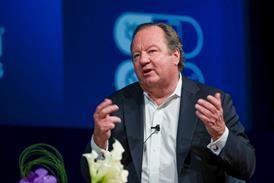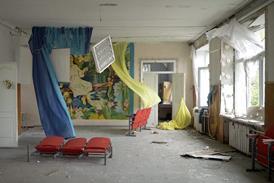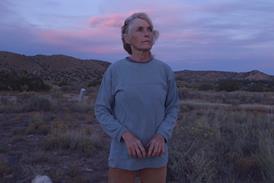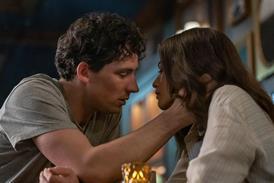A roar of approval, but applause that fell a long way short of a prolonged standing ovation, greeted Roman Polanski's Palme d'Or win at Cannes 2002 with The Pianist.
Jury president David Lynch opened the evening's ceremonies by saying that there were not enough prizes to go round, but that the "jury feels very good about its final choices." The jury's choice of The Pianist, however, surprised a room full of critics.
The film had been given a great build-up by Studiocanal, but many critics felt disappointed by the Warsaw ghetto story. It was felt by many to be "emotionally un-engaging," by others "a dejà vu of familiar images," and generally flat in terms of story-telling. Still others wondered why it had been made in English, not Polish.
Many critics felt that Aki Kaurismaki's The Man Without A Past was more original and pithier. Indeed, with one day of festival screenings still to go, Kaurismaki's film was still leading the pack in Screen International's own daily poll of scores from leading international critics across ten countries.
However The Pianist was a personal triumph for Polanski, who was born in Paris, but raised in Poland. Acclaimed for much of his career, he had never previously been in competition at Cannes. Speaking to the press after the ceremony he emphasised the film's religious and political background. He said "this is a very important film for the Poles." Polanski was keen too to make politico-industrial capital of the occasion, personally thanking the recently deposed Canal Plus chief Pierre Lescure for his support.
There was a degree of surprise at the choice of Olivier Gourmet in Le Fils (The Son) as best actor, ahead of both Timothy Spall in All Or Nothing and Adrien Brody in The Pianist.
The festival's most controversial film, Gaspar Noe's Irreversible came away empty-handed, having almost certainly divided the jury as it divided press and public with its extreme and graphic portrayal of rape and a night club slaying. Other favourites with the critics - Marco Bellocchio's The Hour Of Religion, David Cronenberg's Spider and About Schmidt - came away empty handed.
Other prizes were less controversial. Korea's Im Kwon Taek and the US' Paul Thomas Anderson shared the prize for best direction, while Ken Loach regular Paul Laverty took the script prize.
Michael Moore, with Bowling For Columbine, was a popular winner of the special 55th Cannes Anniversary Prize. The jury noted that it had been unanimous in its decision. But Moore became the butt of running jokes for the rest of the ceremony after insisting on giving the evening's longest thank-you speech in French, a language he had clearly was not 'au fait' with.
Cannes 2002 Prizes
Palme d'Or
The Pianist Dir: Roman Polanski
Grand Jury Prize
The Man Without A Past Dir: Aki Kaurismaki
Best Actress
Kati Outinen in The Man Without A Past
Best Actor
Olivier Gourmet in The Son (Dirs: Luc & Jean-Pierre Dardenne)
Best Direction (joint)
Im Kwon-Taek for Chihwaseon
Paul Thomas Anderson for Punch Drunk Love
Best Script
Paul Laverty for Sweet Sixteen (Dir: Ken Loach)
Jury Prize
Divine Intervention Dir: Elia Suleiman
55th Anniversary Prize
Bowling For Columbine Dir: Michael Moore
Camera d'Or
Bord De Mer Dir: Julie Lopes Curval
Special mention: Japon Dir: Carlos Reygadas
Short films
Palme d'Or
After The Rain Dir: Peter Meszaros
Jury prize
A Very Very Silent Film Dir: Manish Jha
The Stone Of Folly Dir: Jesse Rosensweet
FIPRESCI Prizes
Competition: Divine Intervention
Un Certain Regard: Waiting For Happiness Dir: Abderrahmane Sissako
Other sections: Clay Bird Dir: Tareque Massud
Ecumenical Jury prize
The Man Without A Past
Special mentions
The Son
My Mother's Smile (Aka The Hour Of Religion)
Critics' Week Prizes
Grand Prix: Respiro Dir: Emanuele Crialese
Best short: De Mesmer Con Amor O Te para Dos Dir: Salvador Aguirre & Alejandro Lubzeki (Mexico)



















No comments yet